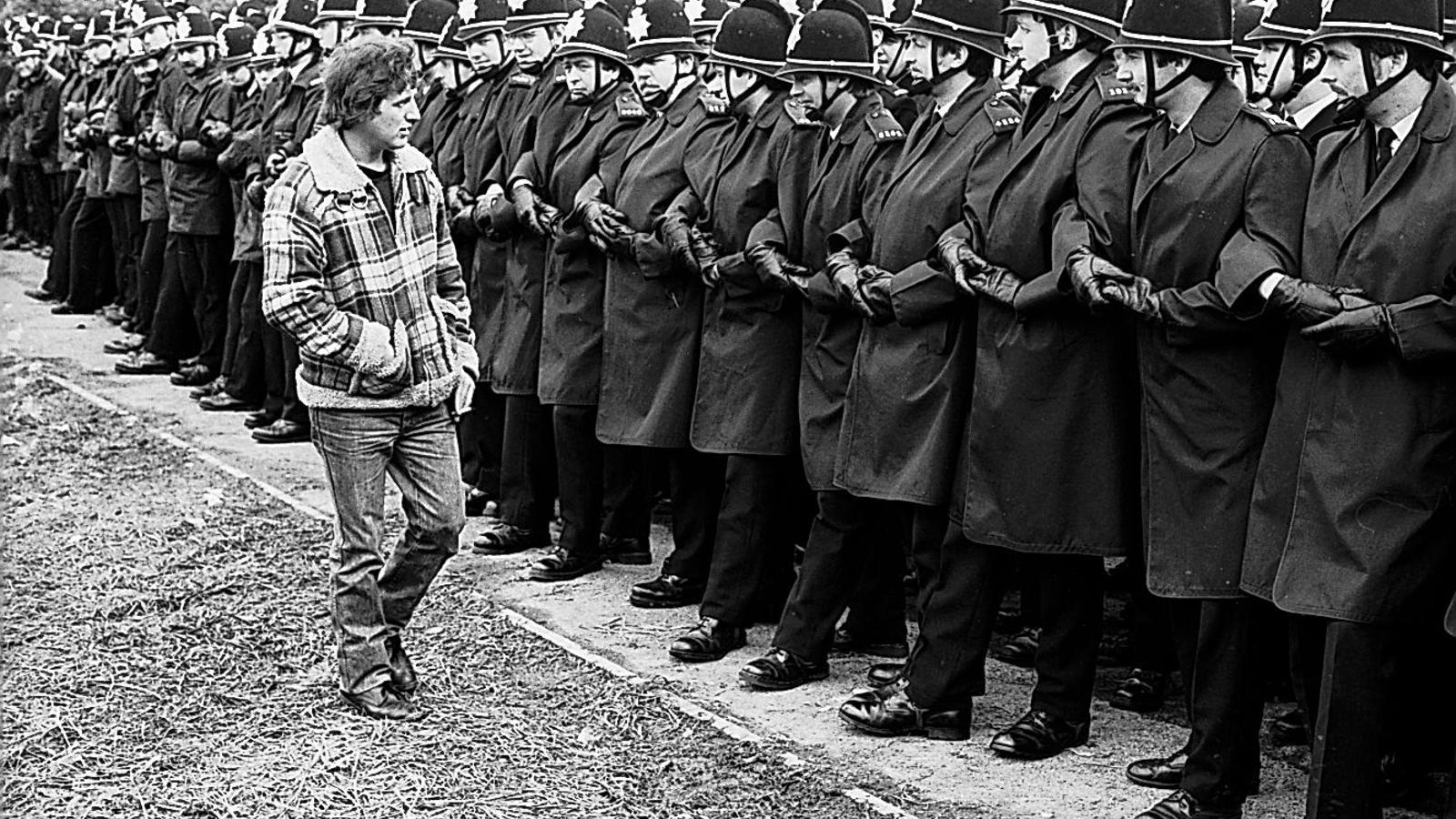The Ghosts of Orgreave: Thatcher, the Miners, and the Battle for Truth
Four decades after the brutal crackdown on strikers, Keir Starmer opens an inquiry into a key episode in the Iron Lady's legacy.


LondonTwelve years after her death, Margaret Thatcher—or her ghost—continues to stir passions in the United Kingdom. In favor, among those most nostalgic for a government that, after the turbulent Labour administrations, gradually ended the power of the unions from 1979 onwards, forever changing the face of the country's work and society. Against, among the left, more aware that the Iron Lady was able to "change the times," according to the reference of the speaker of the Commons, John Bercow, in the session in the fourth April 10, 2013, on the occasion of his transfer. Bercow also quoted Churchill in Parliament: "There are some politicians who make the weather [some politicians 'change time' in the sense that they make history] and Margaret Thatcher was certainly one of them."
Among the episodes most celebrated by her fans are, in addition to the victory in the Falklands War (1982), the determination with which he confronted – and defeated – the coal miners on strike between March 6, 1984, and March 3, 1985. An unequal battle to try to prevent the closure of unprofitable pits – the vast majority: the coal industry had been nationalized in 1947 – a humiliating event.
The conflict particularly affected Yorkshire, Nottinghamshire, Durham, Kent, and South Wales. The impoverished streets of towns like Glynneath, Blaenavon, Merthyr Tydfil, and the Rhondda Valley – all in the historically mining area of Wales – bear witness to this. The bloodiest episode took place in Orgreave, a small town in South Yorkshire, in the north of England, relatively close to Sheffield, approximately 285 km north of London.
On June 18, 1984, thousands of miners clashed with police as they attempted to block coke shipments to the surrounding steelworks. They were unsuccessful. Violent clashes erupted, with police on horseback charging at the protesters with batons. More than 120 people were injured, and 95 miners were arrested.
Labour's election promise
Forty-one years after all that, fulfilling a promise the Labour Party had in its 2024 election manifesto, Keir Starmer's government has announced that it will open an official inquiry into those events in the autumn. It will be chaired by Pete Wilcox, Bishop of Sheffield. It all begins in 2012. An article in The Guardian linked the police operation in Orgreave with the Hillsborough disaster of 1989, when 96 Liverpool fans died in a human stampede before the FA Cup semi-final between Liverpool and Nottingham Forest: Sheffield police, in charge of event security, lied about the victims' responsibility.
The same police force, commanded by the same chief, Peter Wright, led both operations and attempted to blame the victims in both cases by fabricating false evidence. A BBC documentary later revealed that dozens of police statements about the miners' behavior had identical, apparently dictated, opening paragraphs.
The revelation led to the creation of the Orgreave Truth and Justice Campaign (OTJC), which has been campaigning for an official inquiry for the past thirteen years. The group has called for the identification of the person responsible for “organizing and ordering the deployment of multiple police forces, including mounted police armed with batons, shields, and dogs”; it has also called for disclosure of why it was decided that “the miners should be attacked, arrested, and charged with offenses carrying very serious prison sentences,” and has urged an investigation into why the police warrants from that day disappeared and why other evidence was destroyed or remained blocked.
The National Union of Mineworkers has consistently maintained that the police attacks were premeditated, that the miners were surrounded and driven to an area where mounted officers were waiting. Furthermore, no police officer has ever been held accountable for the use of false evidence. All the accused miners were acquitted in July 1985, after a 48-day trial. In 1991, the police awarded 39 of them £425,000 in damages, without admitting any liability.
The right is up in arms.
While the left has celebrated the announcement of the inquiry, the right has been up in arms. Although she also promised it in 2016, when Theresa May replaced David Cameron, she soon went back on her word. Conservative columnists have criticized Home Secretary Yvette Cooper's decision to push ahead with it. Not only because, in their view, it conceals an obsession with blaming "the evil Thatcher" for all the historical scandals, but also because these types of proceedings end up being "simply public therapy sessions."
Currently, there are a record number of 21 active or announced inquiries in the United Kingdom—with or without judicial power—on issues as diverse as public health (COVID), child abuse, sexual exploitation, computer scandals, or the actions of the so-called spy hits, undercover police officers. Since 2010 (and before), dozens have been launched—including against the tabloids—and the cumulative costs exceed €1.3 billion. The ritual phrase often used is that investigations are done "to learn the lessons", to learn lessons that can be useful in the future, regardless of whether the conclusions later imply the filing of criminal charges in court.
In the case of the miners, the big lesson is historical: the Battle of Orgreave was the beginning of the end of the strike. In a few months—or a few years—there will be an official account, already partially known through journalistic investigations. There will be some compensation for those accused at the time, if they are still alive, or for their families. But it will only be symbolic. Oliver Coppard, mayor of South Yorkshire, has assured that the inquiry "represents an opportunity to examine not only the actions of South Yorkshire Police and other forces that day, but also the broader role of the government at the time."
Be that as it may, Thatcher made history. Starmer is pushing ahead with the inquiry to fulfill the easiest of election promises: to confirm it.
